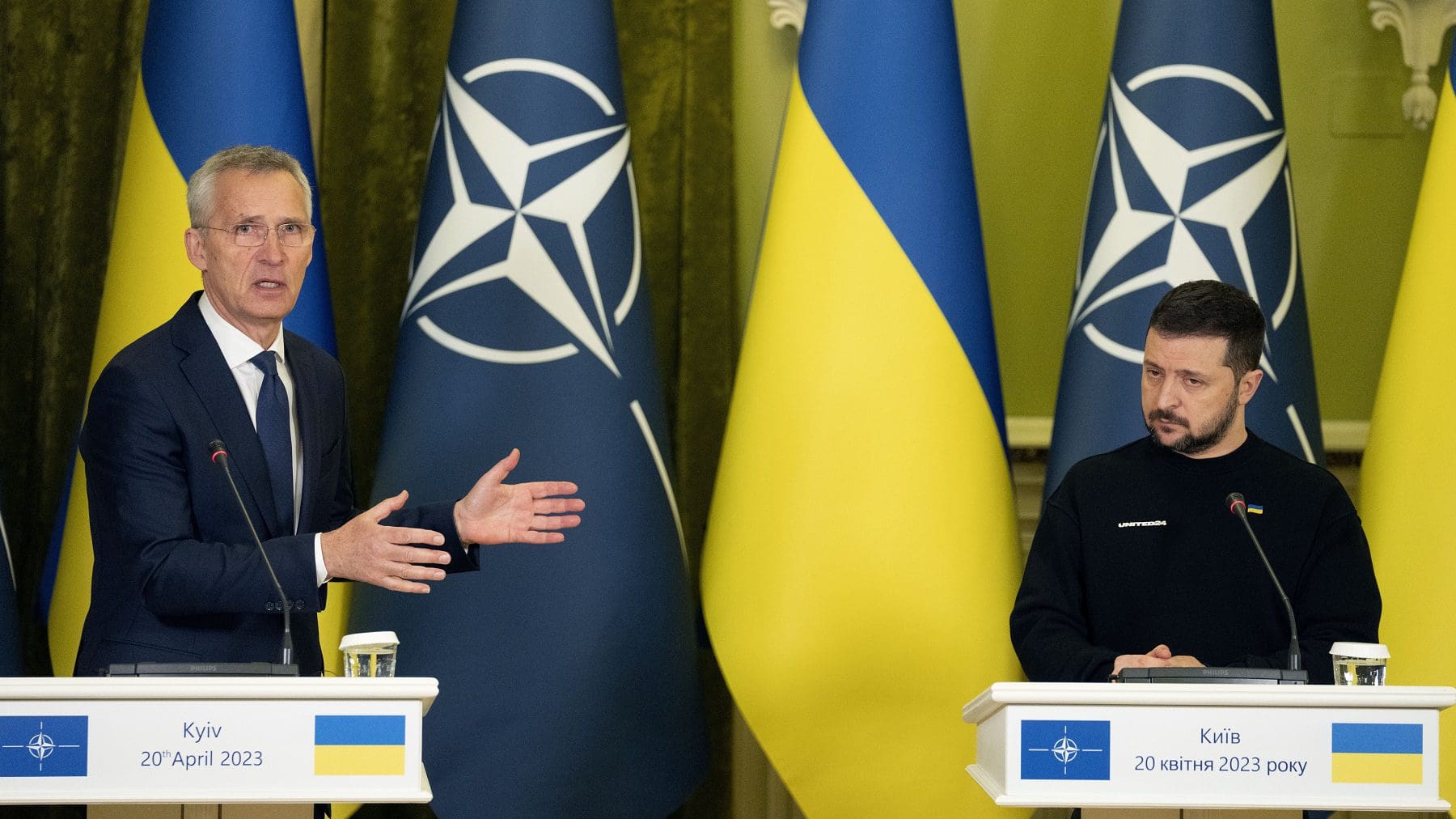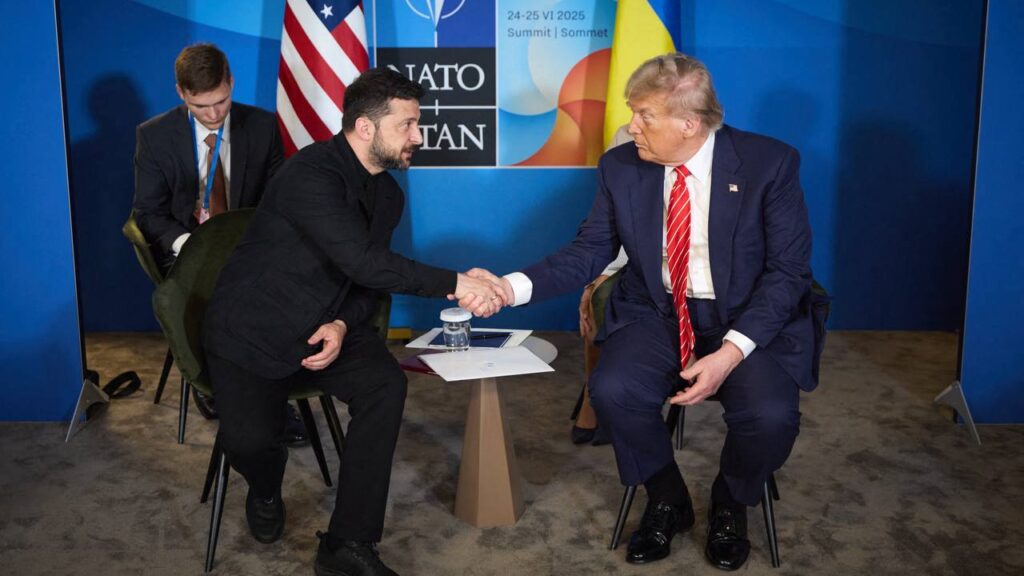Last week, NATO Secretary General Jens Stoltenberg made a surprise visit to the war-torn country of Ukraine. At a joint press conference with President Volodymyr Zelenskyy in the capital city of Kyiv, he made another, even more surprising move:
he stated that ‘Ukraine’s rightful place is in NATO’,
then added ‘over time, our support will help you make this possible’.
In September 2022, the Ukrainian government officially requested an ‘accelerated accession’ to the military alliance—they first declared their official intention to join in 2008, which was backed by many member states. However, the major issue is that one of Russia’s greatest contentions in the ongoing conflict is Ukraine’s potential NATO membership. The statement the former Norwegian Prime Minister, now NATO Secretary General made has the potential of further escalating tensions.
Back in February, we reported on former Prime Minister of Israel Naftali Bennett, who served as a mediator between Kyiv and Moscow, sharing fascinating insider information about the negotiation process that took place in the spring of 2022, right after the war broke out. He too confirmed that the most important condition for potential peace on Putin’s part was that Ukraine would not be admitted to NATO.
The next NATO summit will be taking place 11–12 July this year in Vilnius, Lithuania—a country sharing a border with belligerent Russia. Ukraine’s admission will most likely be one of the most debated topics on the agenda. Zelenskyy told the audience at his joint conference with Stoltenberg that the upcoming summit ‘could be historic’.
Viktor Orbán’s One-Word Reaction: ‘What?!’
Hungarian Prime Minister Viktor Orbán has been one of the most prominent proponents of a negotiated peace, especially among NATO leaders. Evidently, news of the Secretary General’s recent remarks in Kyiv were not received well by him. He took to Twitter to voice his dissent, in the most concise way possible. He retweeted the article by POLITICO and added a single word as commentary: ‘What?!’
Orbán Viktor on Twitter: “What?! https://t.co/j3mJojHHOl / Twitter”
What?! https://t.co/j3mJojHHOl
Given the fact that all NATO member nations have to ratify a new state’s accession, the Hungarian PM’s strong objection to Ukraine’s joining is certainly not a good sign to those hoping to get Kyiv quickly into the alliance. As of now, Sweden’s bid to become the 32nd country in NATO is halted by Hungary’s—and Turkey’s—refusal to officially approve the accession. The Hungarian parliament is yet to ratify Swedish accession, although PM Orbán has asked his party’s representatives to do so.
This is also not the first time the Hungarian Prime Minister has spoken up against a seeming consensus regarding Kyiv, which Ukrainian leaders are usually quick to criticise.
Earlier this month, he halted grain and other food product imports from our neighbours to the east—an action that was first taken by Poland, then followed by our country and Slovakia. Furthermore, he has refused to send weaponry to Ukraine or allow weapons shipments go to Ukraine through Hungary.
The Hungarian government has also criticised the discriminatory way ethnic Hungarians are treated in Ukraine multiple times in the past.








